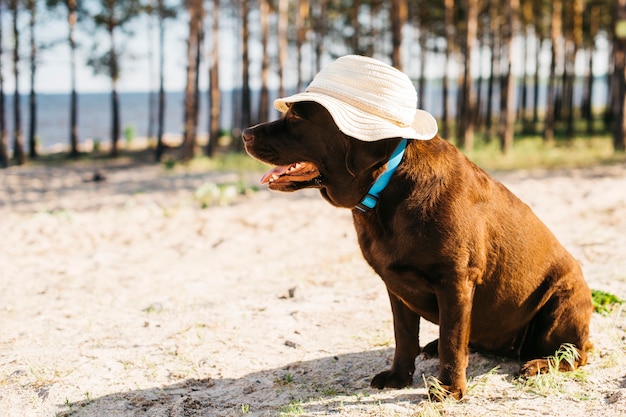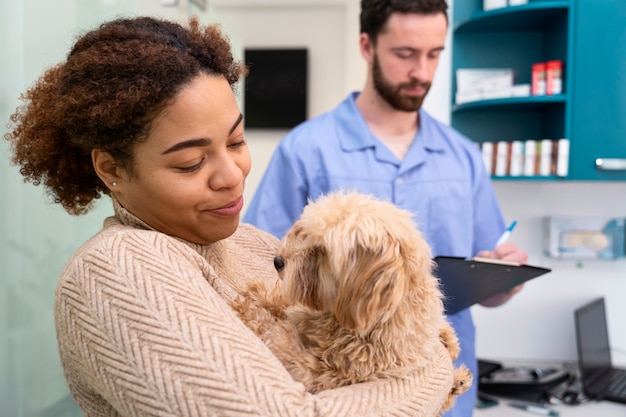Recognizing Heat-Related Emergencies in Pets: Warning Signs and Rapid Response

Recognizing Heat-Related Emergencies in Pets: Warning Signs and Rapid Response
As summer temperatures soar in Carmel and the surrounding communities, the risk of heat-related emergencies in pets rises dramatically. If you are worried your dog or cat may be overheating during an afternoon walk, or you notice your pet panting excessively after time outdoors, you are not alone. Heat exhaustion in dogs and cats is a genuine threat, especially during the hot, humid days common in Indiana’s August. At VetCheck Pet Urgent Care Center - Carmel, conveniently located at 1374 South Rangeline Road, Carmel, IN 46032, we understand how alarming it can be to see your pet struggle in the heat. Our veterinary team is here to help you recognize pet heatstroke symptoms, take immediate action, and access emergency veterinary care whenever you need it—walk-ins are always welcome, and no appointment is needed. In this blog, you will learn how to spot the early warning signs of heat emergencies, understand the risks, and know exactly what steps to take before bringing your pet to our urgent care center for lifesaving intervention. Whether you are searching for a reliable emergency vet near me or want advice on pet heatstroke symptoms in Carmel, you will find the answers here.
Recognizing the Warning Signs: Pet Heatstroke Symptoms You Need to Know
When heat exhaustion in dogs and cats develops, the symptoms can progress quickly. Knowing what to watch for can make all the difference in saving your pet’s life. Early pet heatstroke symptoms include excessive panting, drooling, and restlessness. As the condition worsens, you may notice your pet struggling to breathe, acting lethargic, or even collapsing. Some pets develop bright red gums, rapid heart rates, vomiting, or diarrhea. In severe cases, muscle tremors, confusion, staggering, or seizures can occur. It is important to remember that cats often hide signs of distress, so take note if your feline is panting, seeking cool surfaces, or suddenly acting withdrawn.
Pets with shorter noses, such as bulldogs or Persians, are especially at risk because their airways make it harder to cool off. Overweight pets, seniors, puppies, and those with underlying health issues are also more vulnerable. If you see any of these warning signs after your pet has been in the sun or a warm environment, respond immediately. Even a short time locked in a car or exposed to direct sunlight can trigger a heat emergency. For additional information on urgent pet health issues, visit our emergency veterinary care services page.
Why Heat Emergencies Happen: Understanding the Risks in Carmel
The summer climate in Carmel and neighboring areas brings high humidity and temperatures that can overwhelm your pet’s natural cooling mechanisms. Dogs and cats do not sweat like people do; instead, they rely on panting and a few sweat glands in their paws to release heat. When the outside temperature is too high, or the humidity is elevated, pets cannot cool themselves efficiently. This risk increases if your pet is left in a parked car, even with the windows cracked, or if they exercise vigorously outdoors during the hottest part of the day.
Heat exhaustion in dogs and cats often occurs because of a combination of factors, such as lack of shade, inadequate water intake, or pre-existing medical conditions. Black-coated pets and those with thick fur are particularly susceptible. Even seemingly mild weather can be dangerous if pets are overexerted or confined without airflow. Carmel’s unpredictable summer storms may also encourage pet owners to leave pets in vehicles temporarily, not realizing how quickly heatstroke can set in. Being aware of these local risk factors can help you recognize dangerous situations before they escalate.
Immediate Steps and Professional Treatment: What to Do When Every Second Counts
If you suspect your dog or cat is experiencing pet heatstroke symptoms, rapid action is critical. The first step involves moving your pet to a cooler area, preferably indoors with air conditioning or at least a shaded spot with good ventilation. Offer small amounts of cool (not ice-cold) water if your pet is able to drink, but never force them. You can gently wet their paws, belly, and ears with lukewarm water to help lower their temperature. Avoid using ice baths, as these can cause the blood vessels to constrict and delay cooling.
While these steps are important, they do not replace the need for professional veterinary care. Heat exhaustion in dogs and cats can cause internal organ damage within minutes, so even if your pet seems to improve at home, it is essential to have them evaluated by a veterinarian as soon as possible. At VetCheck Pet Urgent Care Center - Carmel, our veterinary professionals are equipped with in-house diagnostics to assess your pet’s condition quickly and accurately. Diagnostic tools such as blood tests and X-rays allow us to detect complications like kidney injury or clotting problems that may not be immediately obvious.
Treatment approaches at our urgent care center involve intravenous fluids to combat dehydration, medications to address shock or seizures, and careful monitoring of your pet’s temperature and vital signs. Depending on severity, your pet may require hospitalization for ongoing care. Our facility is open when regular veterinary offices are closed, so you never have to wait for help during an emergency. To learn more about our advanced capabilities, see our in-house veterinary diagnostics for urgent cases.
Preventing Heatstroke: Keeping Your Pet Safe in Carmel’s Summer Heat
Preventing heat exhaustion in dogs and cats begins with simple, proactive steps. Always provide access to fresh, cool water and ensure your pet has a shady place to rest when spending time outdoors. Schedule walks and playtime during early morning or late evening hours, when temperatures are lower. Never leave your pet unattended in a parked car, even for a few minutes; the temperature inside can rise dangerously fast. For pets with thick coats, regular grooming can help reduce the risk of overheating.
If you are planning summer outings in Carmel or the surrounding communities, monitor your pet closely for early signs of distress. Short-nosed breeds, older animals, and those with chronic health problems need extra attention. Consider carrying portable water bowls and avoid hot pavement, which can burn sensitive paw pads. If you are unsure whether your pet’s symptoms are related to heatstroke or another urgent condition, our team offers walk-in consultations and immediate care.
When to Seek Veterinary Care: Don’t Wait in a Heat Emergency
Recognizing when to seek urgent pet care can save your companion’s life. If your pet is panting excessively, drooling, vomiting, acting weak, or showing any other signs of pet heatstroke symptoms, do not delay. It is especially important to seek help if your dog or cat collapses, has seizures, or becomes unresponsive. Even pets who appear to recover on their own after early intervention may still suffer from dangerous complications that require professional treatment.
At VetCheck Pet Urgent Care Center - Carmel, we encourage all pet owners to err on the side of caution. Walk-ins are always welcome, and no appointment is needed for emergency cases. Whether you are searching for an emergency vet near me or need urgent care when your regular veterinarian is unavailable, our team is here for you—day or night. For additional support with heat-related emergencies or other urgent medical needs, visit our emergency veterinary care services page.
Compassionate Care When Your Pet Needs It Most
Heat-related emergencies can happen to any pet, but knowing the pet heatstroke symptoms and taking prompt action can make all the difference. Remember to watch for warning signs, act quickly to cool your pet, and seek immediate veterinary care when needed. VetCheck Pet Urgent Care Center - Carmel is dedicated to providing lifesaving treatment for heat exhaustion in dogs and cats in Carmel and surrounding communities. Our veterinary professionals are available when others are not, offering walk-in access and rapid response for any pet emergency.
If you notice signs of heatstroke or any sudden change in your pet’s health, do not wait—visit us at 1374 South Rangeline Road, Carmel, IN 46032 or call (317) 516-0707. For more information on emergency care, including the full range of services we offer, see our emergency and urgent veterinary care page. Our team is committed to keeping your pets healthy and safe, no matter the season. When you need an urgent care vet near me for pet heatstroke symptoms in Carmel, trust us to be here—every day, every hour, every emergency.
This blog is for informational purposes only and should not replace professional veterinary consultation. If you believe your pet is experiencing a heat emergency, seek immediate veterinary care.



















